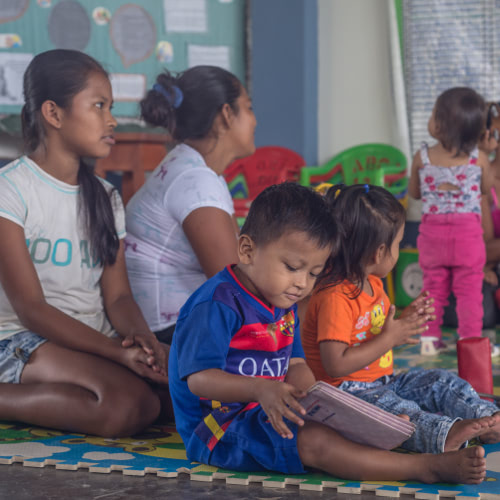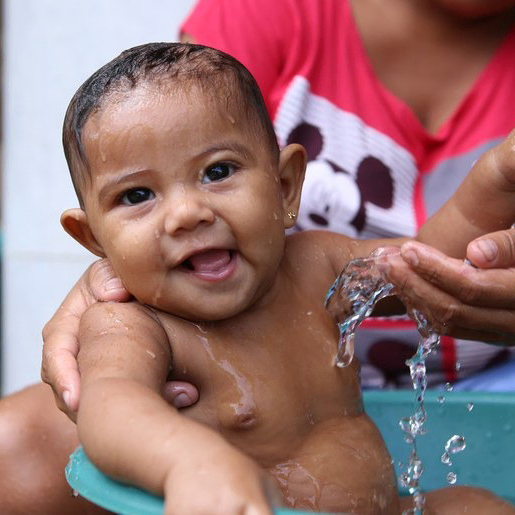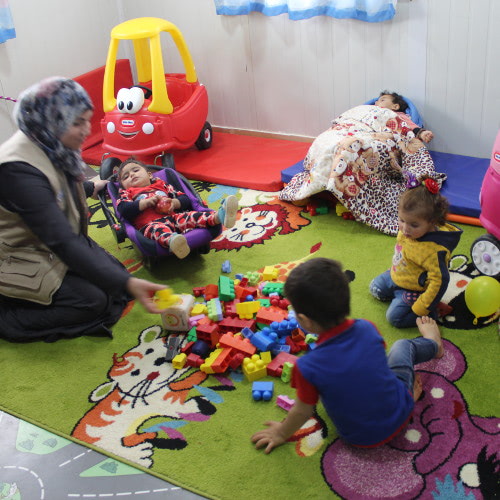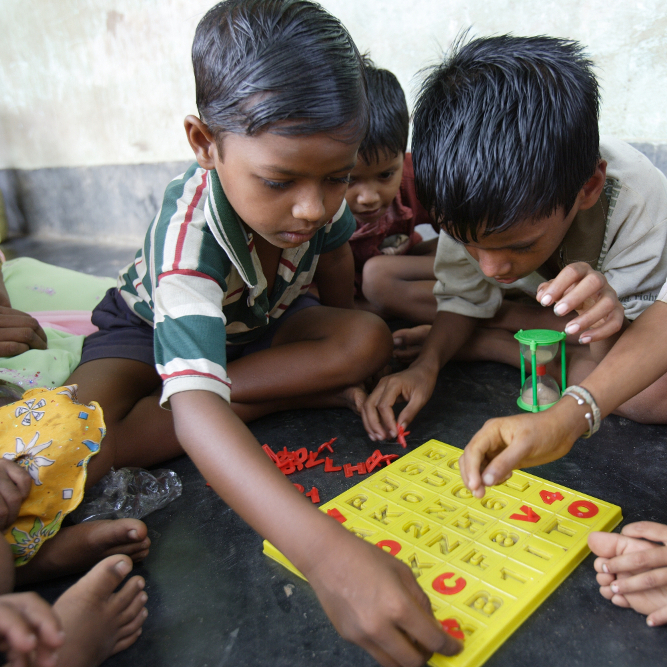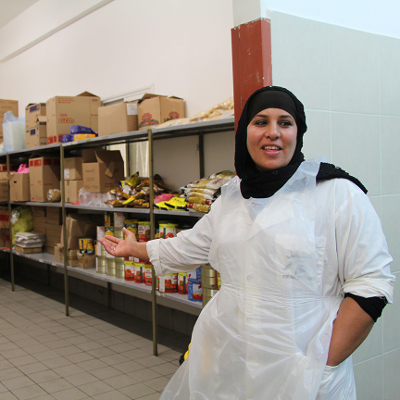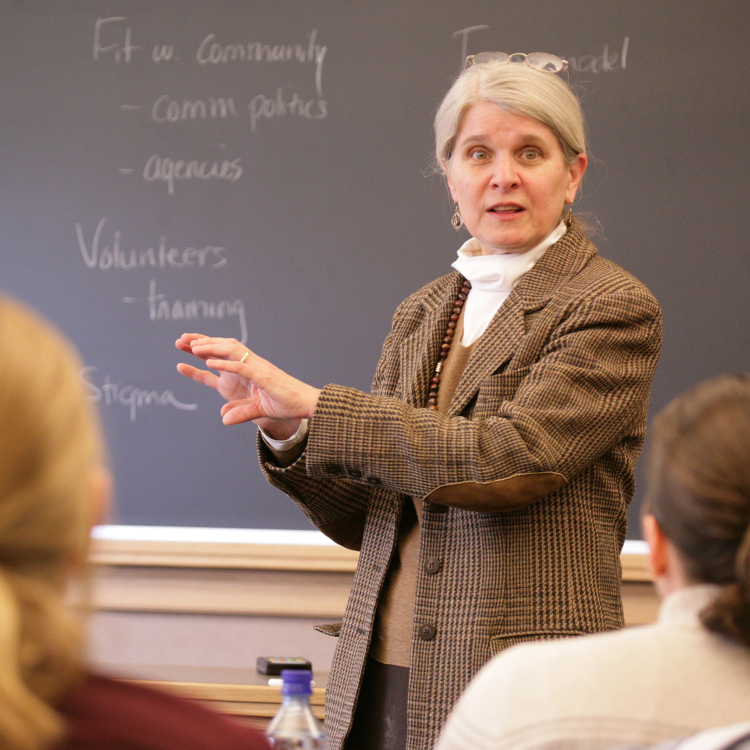Visits from community health workers have been shown to have positive effects on the health, nutrition, learning and safety of young children in Peru. The Foundation has been working in impoverished rural regions to help municipalities access available national government funds and implement home visiting programmes.

Photo: Eleazar Cuadros - Loreto - Educación y salud
Growing up in the Amazon
Peru’s national government is committed to investing in the country’s children, but the region’s decentralised political structure means local municipalities have the responsibility for deciding what services to offer. Many civil servants lack the technical skills to apply for the available funds and implement the programmes.
Rural, indigenous communities in the Amazonian jungle are challenging places for young children to grow up. Two-thirds of people in the region of Loreto live below Peru’s poverty line, mostly making a living from subsistence farming, hunting or fishing. More than one in four children are chronically malnourished – well above the national average.
Building will and skill in municipalities
Building will and skill in municipalities
Our work with the government, Red SUMA (formerly Red Innova) and Kusi Warma in the regions of Loreto, Ucayali, Huancavelica and Apurimac had reached by the end of 2017 a total of 58,763 children out of a target of 86,000. Ultimately, the aim is to help the Peruvian government to reach 700,000 children across the nation.
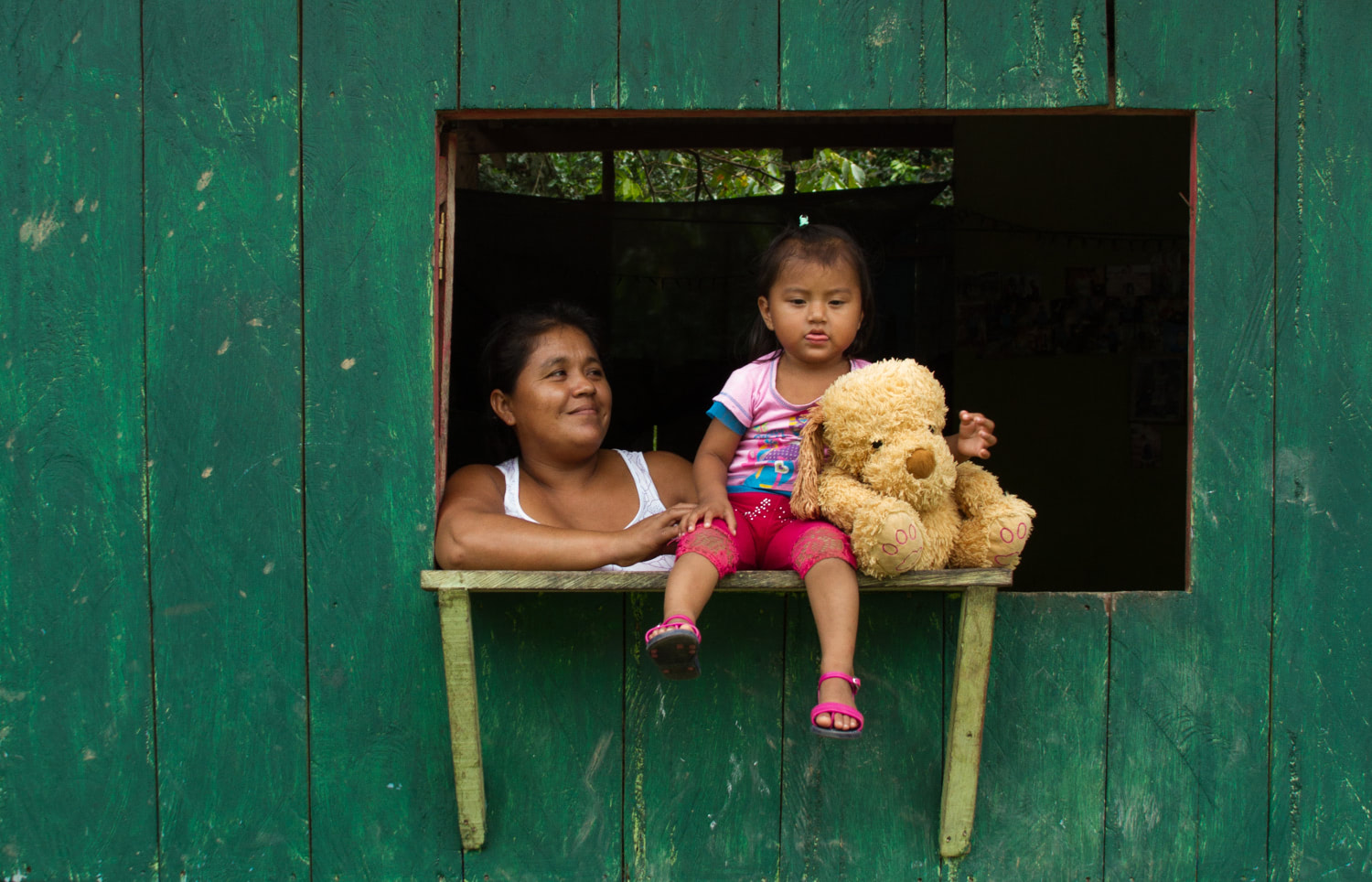
Photo: Vanessa Touzard/Peru
The model involves community health workers making visits once or twice a week to pregnant women or mothers with children aged under three, often accompanied by a volunteer mother from the local community. The home visitors provide advice and support on parenting, bringing toys and books and showing the mothers how to interact with their children to help their development.
One mother who benefited from the home visiting services, Linda Ramírez, testifies to the impact on her parenting of learning about:
… the importance of talking to our children and telling them we love them. I realised my parents loved me but they didn’t know the importance of saying it. That’s why now I say nice words to my child, I hug him, I sing songs for him, I kiss him.
